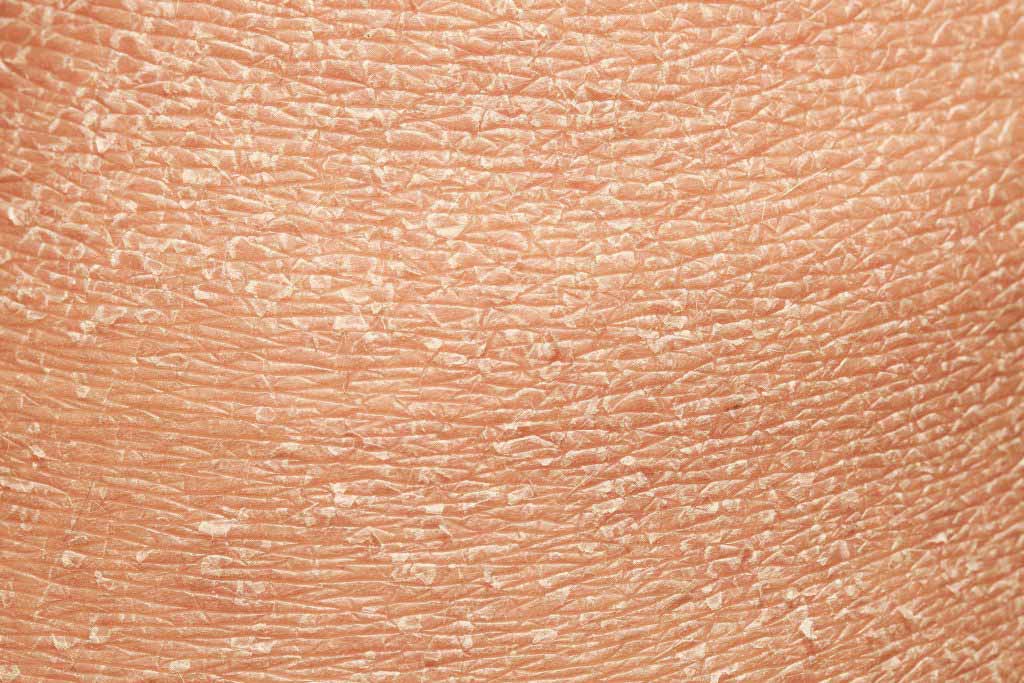YOUR SKIN SAYS A LOT ABOUT YOUR HEALTH
Your skin is a reflection of your inner health, and as a practitioner it’s one of the first things I look at when meeting my patients. It gives me a really good insight to what might be going on within your body, below the surface.
A skin condition is often the manifestation, or symptom, of a deeper underlying health issue, so when dealing with skin complaints, my detective work begins by investigating the gut, immune system, foods, hormonal imbalances and stress factors, all of which contribute to skin health.
THE SKIN IS THE LARGEST ORGAN IN THE BODY
People often forget that their skin is an organ, in fact the largest one in the body. According to the American Academy of Dermatology (AAD) every single inch of skin contains 19 million skin cells, 650 sweat glands, 20 blood vessels, and 1,000 nerve endings.
Your skin makes up about 15% of your total body weight.

FUNCTIONS OF THE SKIN
Your skin is a complex structure that covers most of your body and the epidermis – thin outer layer of your skin – replaces itself every 28 days. Not only does your skin heal and replace itself, it also functions as a sensory receptor, perceiving heat, cold, pain and pressure. Just like the rest of the body it is susceptible to bacterial infections, food or seasonal allergy, hormonal imbalances, fungal, viral and parasitic infections, from cuts and bruises, to rashes and insect bites, and from acne to more severe skin conditions such as psoriasis, eczema and rosacea.
Your skin is also responsible for many other important tasks:
- Insulation and regulation of body temperature
- Reduces harmful effects of UV radiation
- Synthesis of vitamin D
- Waste removal and detoxification.
- Absorption of topical applications
WHAT FACTORS CONTRIBUTE TO SKIN PROBLEMS?
- A diet high in sugars and processed foods, and low in fibre
- Poor hydration
- Lack of essential fatty acids
- Hormonal changes and imbalances
- Skin and gut microbiome
- Liver toxicity
- Stress: Mental health
- Loss of collagen
- Lack of Vitamin A, C, D, E
- Environmental toxicity: skin care and make-up products, air pollution, household products containing chemicals
- Alcohol and smoking
According to the British Skin Foundation, 60% of people in the UK currently have a skin condition or have previously had a skin condition.

AN ‘ORGAN’ IN ITS OWN RIGHT
The human microbiome is composed of communities of bacteria, viruses and fungi that have a greater complexity than the human genome itself.
The European Commission’s METAgenomics of the Human Intestinal Tract and the Human Microbiome Project, have reported 3.3 million unique protein-encoding genes as compared with the entire human genome, which has around 23,000 genes. These studies have described the beneficial functions of the normal gut microbiota on health down to the genetic level.
The human microbiome has extensive functions such as development of immunity, defence against pathogens, host nutrition including production of short-chain fatty acids important in host energy metabolism, synthesis of vitamins and fat storage as well as an influence on human behaviour, making it an essential ecosystem within our bodies without which we would not function correctly.
THE SKIN MICROBIOME AND THE GUT-SKIN AXIS
Your skin and gut, also have their own microbiomes and the connection between them is referred to as the gut-skin axis, therefore your skin health is deeply rooted in your gut health. The gut and skin microbiota are made up of trillions of microbes, derived from thousands of different strains, that live together as an intricate ecological community. These microbiota, along with their metabolic byproducts and host interactions, directly influence both normal physiology and disease processes.
When this connection is disrupted, or there is imbalance (known as dysbiosis) it can lead to skin conditions such as psoriasis, dermatitis, rosacea, acne, photoageing, as well as digestive and weight disorders such as inflammatory bowel disease (IBD).
YOUR GUT FLORA IS KEY TO YOUR SKIN HEALTH
Your skin health is inextricably linked to your gut health and the food you eat. Your immune system and the stress it is under are also driving factors of gut and skin conditions. While a well-balanced diet containing a variety of nutrients is a great tool to support your skin and gut health, using a targeted skin, gut and immune supporting nutrition plan and supplement protocol goes a step further.
Prebiotics and probiotics support your gut flora, being shown to help patients with atopic dermatitis, while the high glycemic foods (high sugar diets) have a strong impact on the teenage acne population. Further, topical vitamin C has been shown to have a wide range of clinical applications for the skin, from antiaging and antipigmentary to photoprotective.
Your skin is a true reflection of your inner health, so after reading this blog, my wish is for you to understand what might be going on within the body. So next time your skin is crying out for help, remember that what you put on your skin is important but what’s even more important is what you are putting in your body.
Nutritional therapy and functional testing can help identify foods at the root cause of your skin issues.
Book a free 20 minute pre-consultation to discuss your symptoms and concerns by following the link below. Your health. Your choice.
Namaste and stay healthy!
Carmen x
